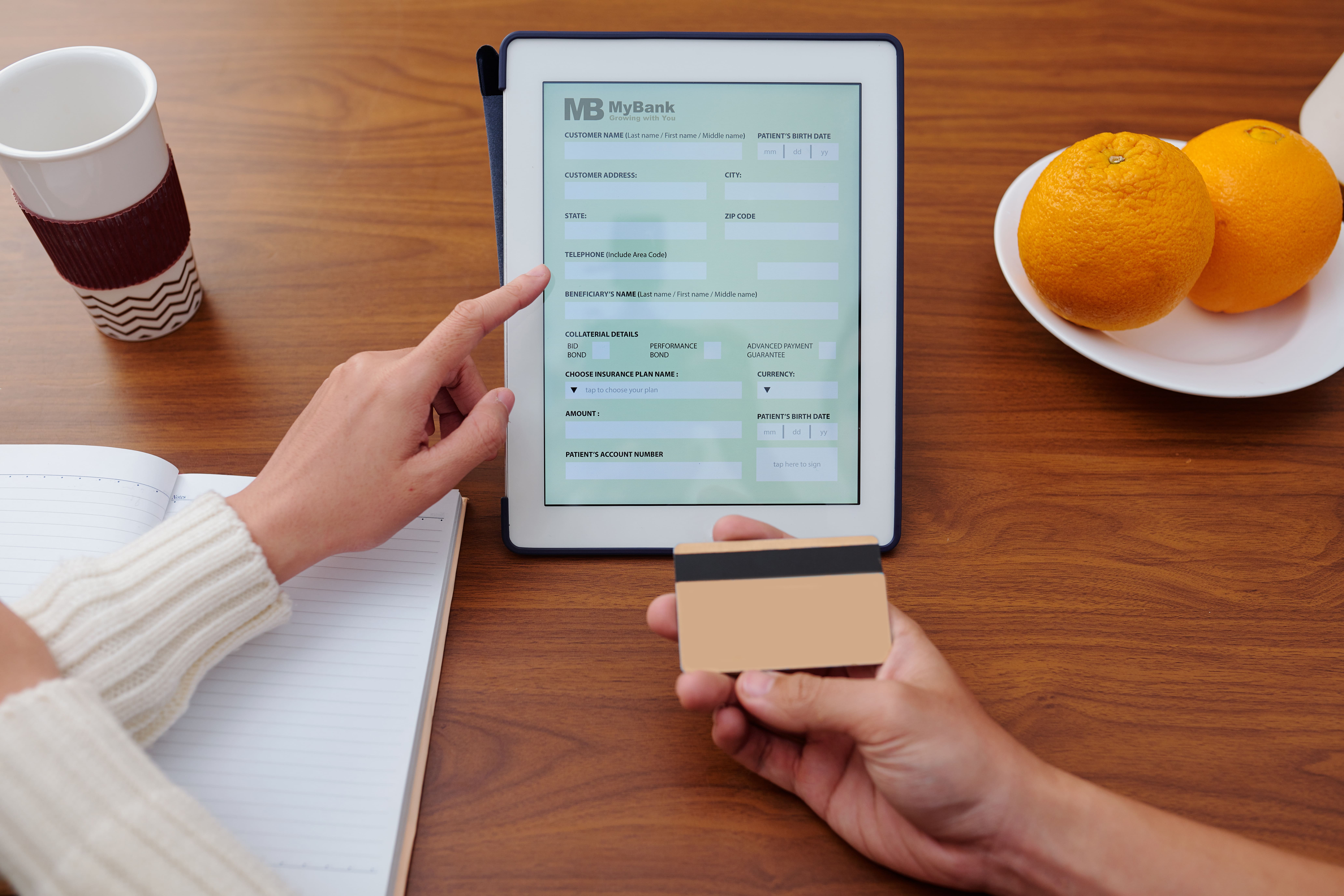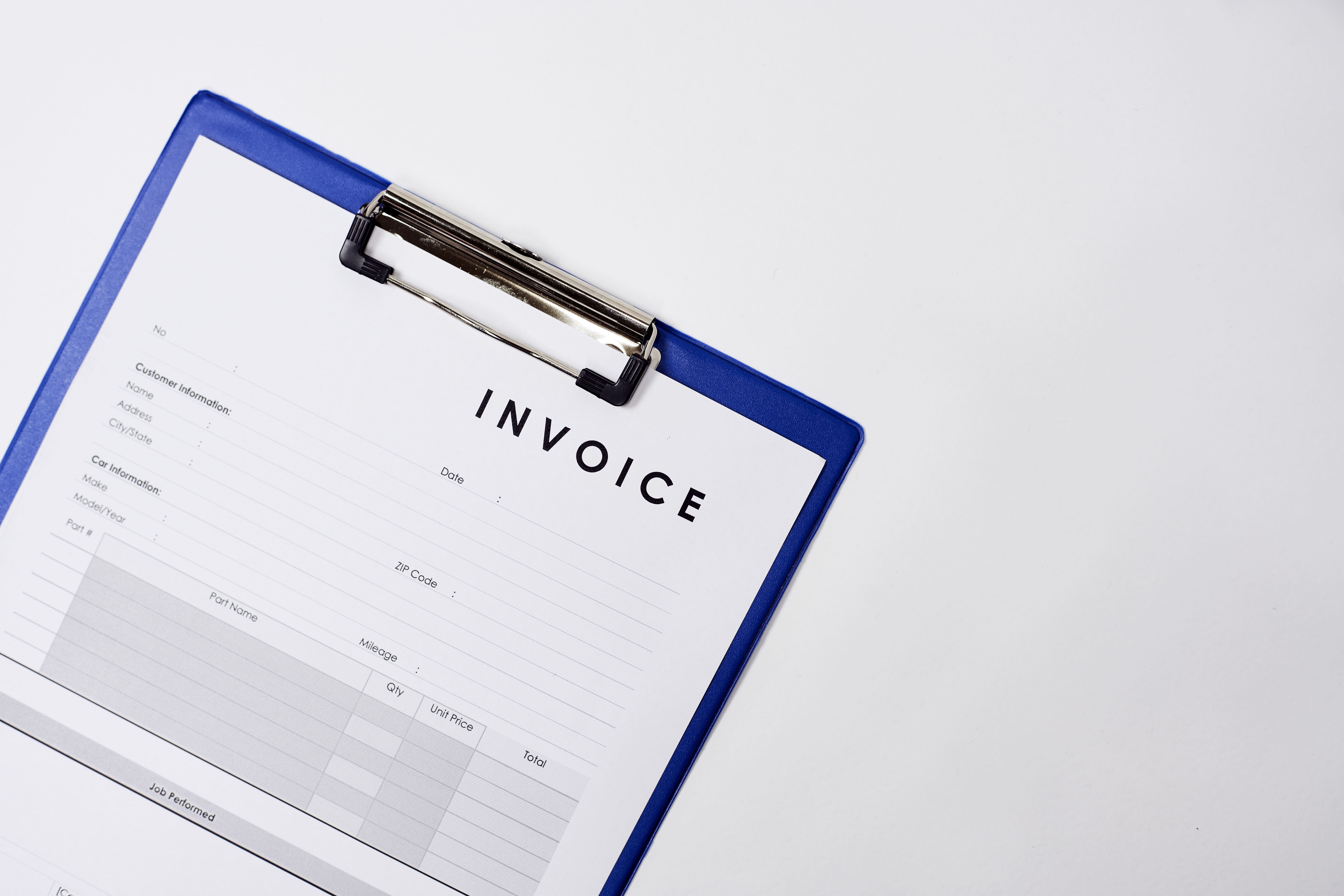As a real estate investor or landlord, managing financial transactions efficiently is crucial for success. Electronic checks, commonly known as eChecks, offer a modern, digital alternative to traditional paper checks, streamlining payments for rent, deposits, and other property-related expenses.
In this guide, we’ll discuss how an eCheck works, and you can leverage this secure and cost-effective payment method to improve your rental property operations.
Key takeaways
- An eCheck is a digital version of a paper check, facilitating electronic funds transfers via the ACH network.
- eChecks are widely used in real estate for rent, security deposits, and closing costs due to their efficiency.
- Processing times for eChecks typically range from 3-5 business days, though faster options exist.
- They are significantly more cost-effective than credit card processing, with lower transaction fees.
- Robust security features like encryption and authentication protect eCheck transactions.
What is an eCheck?
An eCheck, or electronic check, is a digital payment method that draws funds directly from a payer's bank account to a recipient's account.
It functions as a paperless version of a traditional check. Instead of writing out a physical check, the payer provides their bank account and routing information electronically. This data initiates an electronic funds transfer.
eChecks utilize the Automated Clearing House (ACH) network for processing, a secure electronic network for financial transactions in the United States. This system allows for efficient, high-volume transfers between bank accounts.
You can learn more about the differences by exploring ACH vs check.
How does an eCheck work?
eCheck payments involve several steps, all managed through the ACH network. This digital workflow ensures a systematic transfer of funds from one bank account to another.
Here’s a breakdown of how the eCheck works.
- Authorization: The payer provides explicit authorization to the recipient for the payment. This can be done online, over the phone, or through a signed agreement detailing the amount and frequency. For example, a tenant authorizes a landlord to pull the monthly rent.
- Information Submission: The payer submits their bank account and ACH routing number to the recipient. This information is crucial for directing the electronic funds transfer.
- Payment Initiation: The recipient, often a landlord or property manager, uses this information to initiate an eCheck through their payment processor. This begins the electronic transaction.
- ACH Network Submission: The payment processor sends the eCheck transaction details to the ACH network. The ACH network then acts as a central clearing facility between banks.
- Bank Processing: The payer’s bank verifies the availability of funds and deducts the amount. Concurrently, the recipient’s bank receives the funds via the ACH network. You can find out more about this process by reviewing what ACH banking is.
- Funds Settlement: The funds are deposited into the recipient’s bank account. This completes the payment cycle, typically within a few business days. To simplify this, landlords can learn how to send ACH payment online.
Why use eChecks for real estate transactions?
eChecks offer numerous advantages for real estate transactions, making them a preferred choice for many landlords and property managers. Their digital nature enhances efficiency, reduces manual effort, and provides a reliable method for transferring funds. This is especially true for recurring payments.
eChecks are commonly used for monthly rent payments and security deposits. Their ability to handle recurring transactions makes them ideal for scheduled rental income. Many landlords benefit from automated rent collection services.
For landlords, eChecks simplify the process of collecting rent, especially with options like a rent payment system that integrates with property management tools. This reduces the administrative burden associated with physical checks.
Some systems also allow for split rent payment app functionality, offering tenants more flexibility. Landlords can offer flexible rent collection options to tenants, which improves payment adherence.
Baselane offers an integrated solution for landlords, facilitating easy eCheck-based rent collection with automated invoicing and real-time payment notifications. This helps landlords maintain a consistent cash flow and streamline their financial management.
Using a comprehensive property management rent collection software can further enhance these benefits.
eChecks processing time, fees, and cost advantages
eChecks typically take 3-5 business days to clear. During this period bank verifies the identity of the sender and ensures funds are genuinely available. Funds are usually verified within 24-48 hours, providing an initial confirmation of the transaction.
There are a bunch of factors that can influence the processing time of eChecks:
- Type of bank/banking platform used to initiate the transaction
- Payment initiation time and day
- If same-day ACH processing is used (typically comes with additional charges).
eChecks present a highly economical option compared to other digital payment methods. Their low processing fees contribute to greater overall savings.
The average eCheck payment processing fees range from $0.30 to $1.50 per transaction. In contrast, credit card processing fees typically range from 1.5% to 3.5% of the transaction amount. A $1,500 rent payment via credit card could incur fees of $22.50 to $52.50, whereas an eCheck might cost only $1.00.
This substantial difference in fees directly impacts a landlord’s bottom line, especially when managing multiple properties. Some services even offer free eCheck processing or free eCheck service, but this usually applies only in promotional periods or special cases like limited transactions or trial accounts.
How to handle bounced payments and disputes with eChecks
While eChecks are generally reliable, they’re prone to bounced payments or conflicts. Knowing how to handle these situations effectively is crucial to maintaining positive tenant relationships and minimizing financial disruptions.
Bounced eChecks
An eCheck can "bounce" if there are insufficient funds in the payer's account. When this happens, the transaction fails, and the landlord typically incurs a fee from their bank. It is important to address this promptly.
- Notification: Immediately notify the tenant about the bounced eCheck and any associated fees. Most lease agreements outline penalties for such occurrences.
- Repayment: Request immediate repayment, often suggesting an alternative, more secure payment method or a resubmission of the eCheck with confirmation of funds.
- Documentation: Document all communication and fees related to the bounced payment. This record is vital for financial tracking and potential future reference.
Cancellations and disputes
- Cancellation: An eCheck payment can sometimes be canceled by the payer's bank within a certain timeframe if an error is detected or if authorization is revoked. This is less common for recurring, authorized payments.
- Disputes: If a tenant disputes an eCheck payment, claiming it was unauthorized, both banks will investigate. Providing the documented authorization is critical for the landlord in such cases.
- Resolution: Clear communication and evidence are essential for resolving disputes. Landlords should have robust record-keeping practices.
Baselane's banking platform helps you track all transactions, including failed transactions, giving you visibility into your financial operations. You can easily pick bounced or failed payments and take action to resolve issues.
Integrating eChecks with automated rent collection and property management
Modern real estate management thrives on efficiency, and integrating eChecks with automated rent collection and property management software is a prime example of this. This integration streamlines workflows, reduces manual errors, and provides landlords with greater financial visibility. Online eCheck processing can save valuable time and resources.
By integrating eChecks directly into property management software, landlords can set up recurring rent payments, automate invoicing, and track payment statuses in real-time. Automated systems not only save time but also help landlords monitor eCheck processing fees across different transactions to track savings accurately.
This eliminates the need for manual payment collection and reconciliation. Baselane offers a comprehensive solution that combines banking, bookkeeping, and rent collection, making it ideal for this purpose.
Benefits of Integration:
- Automated Rent Collection: Tenants can set up auto-pay, ensuring rent is consistently collected on time. Baselane's rent collection feature includes automated reminders and late fees.
- Streamlined Bookkeeping: eCheck transactions are automatically categorized and tagged to specific properties within the software. This simplifies reconciliation and prepares tax-ready reports.
Baselane's bookkeeping tools auto-categorize transactions and generate Schedule E reports. You can also integrate with other real estate accounting tools like property tax management software, HOA accounting software, or, for specific investment strategies, the best accounting software for real estate flippers.
- Real-time Insights: Landlords gain immediate visibility into their cash flow and payment statuses through a unified dashboard. This enables smarter financial decisions.
- Enhanced Tenant Experience: Tenants benefit from a convenient and secure online portal to make payments and view their payment history. This convenience improves tenant satisfaction.
Baselane's platform empowers landlords to take back time, gain clarity and control, and grow their passive income. By integrating eChecks with an all-in-one financial solution, landlords can optimize their rental property finances, moving away from fragmented systems.
This integration ensures that property finances are managed with precision and efficiency.
Best practices for using eChecks in rental payments
Effectively using eChecks for rental payments requires adherence to certain best practices by both landlords and tenants. These practices help ensure smooth transactions, minimize disputes, and leverage the full benefits of this digital payment method.
- Use reputable providers: Choose an ACH payment processor or banking platform that has a strong track record for security and reliability. Baselane offers integrated banking and rent collection, built with security in mind.
- Verify bank information: Always verify the tenant's bank account and routing number to prevent errors and bounced payments. This upfront check can save time and hassle.
- Maintain authorization records: Keep clear, documented authorization from tenants for all eCheck payments. This protects you in case of disputes.
- Automate payments: Encourage tenants to set up recurring eCheck payments for rent. This ensures timely income and reduces the need for manual follow-ups. You can also explore options for email rent notifications and payments.
- Organize finances: Set up dedicated landlord bank account options, like those offered by Baselane, to separate rental income and expenses. This simplifies bookkeeping and tax preparation.
- Manage multiple accounts: Consider setting up multiple bank accounts for rentals to segregate funds for different properties or purposes, such as operating expenses and multiple security deposits. Baselane allows you to create unlimited accounts for each property, helping you maintain clarity and control.
- Implement controls: For larger portfolios, consider establishing dual authorization for disbursements, especially when handling ACH payables to vendors or contractors.
The future of eChecks in real estate: Trends and innovations
The real estate industry is continually evolving, with technology playing an increasingly vital role in modernizing transactions. eChecks, with their inherent digital nature, are well-positioned to adapt to and drive future innovations in property payments. Several trends suggest their continued growth and enhanced capabilities.
The shift towards remote real estate transactions is accelerating the adoption of digital payment methods like eChecks. As more property dealings, from lease signings to rent collection, occur remotely, the convenience and security of eChecks become even more valuable. This trend reduces geographical barriers and streamlines processes for landlords and tenants alike.
Innovations in payment processing, such as faster ACH processing times, are making eChecks even more competitive with other digital payment methods. Continuous advancements in security protocols and fraud prevention also ensure that eChecks remain a trusted option.
The integration of eChecks with broader financial management platforms, like Baselane, will likely deepen. This will offer landlords even more comprehensive tools for managing their entire real estate portfolio from a single interface.
Start using eChecks with Baselane
eChecks provide a secure, cost-effective, and efficient method for managing real estate transactions, particularly for rent payments and security deposits.
Embracing this digital payment solution can streamline your property management workflows, reduce administrative burdens, and enhance your overall profitability.
To take back time, gain clarity and control, and grow your passive income, consider integrating eCheck payments with a dedicated banking platform like Baselane.
Baselane offers a robust banking and rent collection solution, tailored specifically for landlords, to simplify your financial management and empower your real estate journey. Create an account today and experience the benefits of integrated financial tools.
FAQs
What is an eCheck in real estate?
An eCheck is an electronic version of a paper check, allowing funds to be transferred digitally from one bank account to another via the ACH network. In real estate, it is commonly used for rent payments, security deposits, and other property-related expenses.
How long does an eCheck take to process?
eChecks typically take 3-5 business days to process and clear, with funds usually verified within 24-48 hours. Factors like the time of submission and participating banks can influence this timeframe.
Are eChecks a secure payment method for landlords?
Yes, eChecks are highly secure. They utilize encryption, digital signatures, and authentication mechanisms to protect transactions. Furthermore, eCheck payments are regulated by NACHA Operating Rules and federal Regulation E, which provide guidelines for processing, error resolution, and consumer protection.













.jpg)



.jpg)